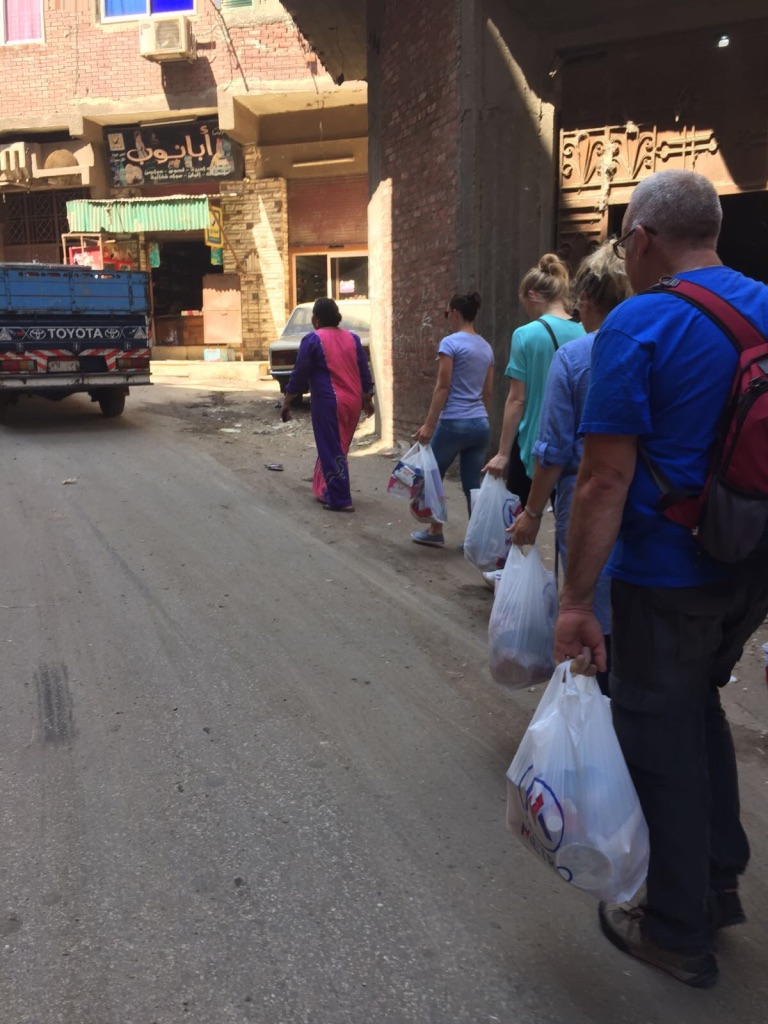By Sharon Hoy, UK
“If a child lives with criticism, he learns to condemn.
If a child lives with hostility, he learns to fight.
If a child lives with ridicule, he learns to be shy.
If a child lives with fear, he learns to be apprehensive.
If a child lives with shame, he learns to feel guilty.
If a child lives with tolerance, he learns to be patient. If a child lives with encouragement, he learns to be confident.
If a child lives with acceptance, he learns to love.
If a child lives with recognition, he learns that it is good to have a goal.
If a child lives with honesty, he learns what truth is.
If a child lives with fairness, he learns justice.
If a child lives with security, he learns to have faith in himself and those around him.
If a child lives with friendliness, he learns that the world is a nice place in which to live, to love and to be loved.”
On entering a district densely populated by the Nuba Sudanese, my initial impression was one of despair. Here, people live among heaps of land fill, rubble and waste material. I saw Children playing, yet, emotionally, they must grow up fast through witnessing their parents’ struggles, which includes a lack of decent living standards. Here, access to education is scant; good jobs are elusive, and living accommodation is inadequate.
Although it seems that the adults are economically active, there are accounts of people being unable to meet their rent plus subsistence. Where is the support for them, in order that they may be encouraged to move forward; where is the practical help, in order that they may be encouraged to effect change? This area appears to be a place where the refugees have become ‘stuck’.
What of the next generation, for change is needed, so that they may know a sense of true worth in the community. As things stand now, how can the families improve their situation, any more than they can return to Sudan?
The town left me with the impression that it is not so much a home, but a transit centre that has evolved into something far more long-term than was the intention. Given this picture of the inequitable life of the refugees, any sense of self-worth would be nothing short of a miracle of God in the life of the individual. This is where The Centre of Hope enters the story: it may be found at the heart of the community, where upwards of 40 children (ages 2-14). The children receive education, meals and all the necessary support they need to be prepared to enroll in a normal school.
When I was there, the temperature outside was 38ºC. What I found amazing was that, despite these conditions, the children entered excitedly and quickly took their seats; the older ones helping the younger children. These children are hungry for learning.
After the lesson ended, we moved through the village distributing food parcels, shoes and clothing to those in need. We were accompanied through the town by a Sudanese man who teaches at the Centre of Hope; he identifies those in need, tending to their pastoral needs.
Hope for Mena helps to train leaders, such as this man. In turn, they may teach and train their own people. Thus the whole community benefits, and their own church. I pray that many more catch the vision to get involved in this wonderful ministry, or be the senders that make that possible.
The beautiful Nuba Sudanese, who have made their home outside Cairo, need support and encouragement regarding their existing skills, and the learning of new ones. In this way, they may minimise their debt and increase their income.
While practically and spiritually we do what we can, ultimately, we trust the Lord of the Harvest to do what is right in each of their lives (Matt. 9:35-38).




